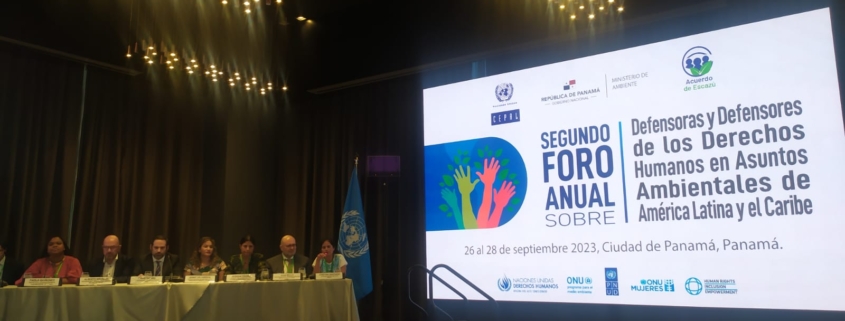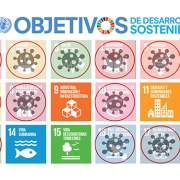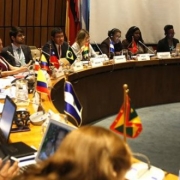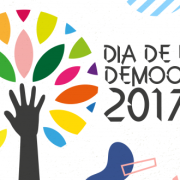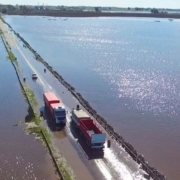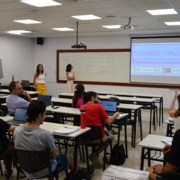We participated in the 2nd Forum on Environmental Defenders of Latin America and the Caribbean
During September 26, 27, 28 and 29 we were participating in different activities linked to the Second Annual Forum on Human Rights Defenders in Environmental Issues in Latin America and the Caribbean. This Forum is organized by ECLAC in its role as Secretariat of the Escazú Agreement.
“Below, we offer a google translate version of the original article in Spanish. This translation may not be accurate but serves as a general presentation of the article. For more accurate information, please switch to the Spanish version of the website. In addition, feel free to directly contact in English the person mentioned at the bottom of this article with regards to this topic”.
Latin America and the Caribbean continues to be the most dangerous area in the world to carry out environmental defense. Last year, 177 environmental defenders were murdered and 88% of the homicides occurred in Latin America. That is why States must make more and better efforts to guarantee security and provide a safe environment for the development of this task.
Let us remember that the Agreement on Access to Information, Public Participation and Access to Justice – known as the Escazú Agreement – is the first regional environmental treaty in the world to contain specific provisions for the protection of defenders. Specifically, Article 9 provides that States must guarantee a safe and enabling environment in which individuals, groups and organizations that promote and defend human rights in environmental matters can act without threats, restrictions and insecurity.
In this context, together with indigenous communities and defenders from across the region, we met in Panama to provide input on the proposed draft of the Regional Action Plan on Defenders that will be presented next year at the next meeting of the Conference of the Parties (COP 3). This is a true opportunity to impact environmental issues that affect our region.
The Escazú Agreement is the first treaty in the world that has open and horizontal dialogue spaces. These participatory processes are a true tool for the collective construction of public policies.
The main demand from the communities is the urgent ratification of the Agreement by all the states in the region. On the other hand, the violence that groups and people who protect the environment continually experience were exposed, even more so in the context of climate change. In this sense, it is essential to pay special attention to situations of human rights violations in the context of extractive processes linked to the energy transition.
On the other hand, the main request was for the transversal incorporation of a gender and intercultural perspective into the Plan, giving specific recognition to indigenous communities, who have historically been guardians of our common goods.
We hope that more states in the region will ratify the Agreement in the short term and that the claims that were reiterated by the communities will be considered and included in the Plan.
More Information
Resource on Escazú Agreement | Fundeps
Contact
María Laura Carrizo, lauracarrizo@fundeps.org

